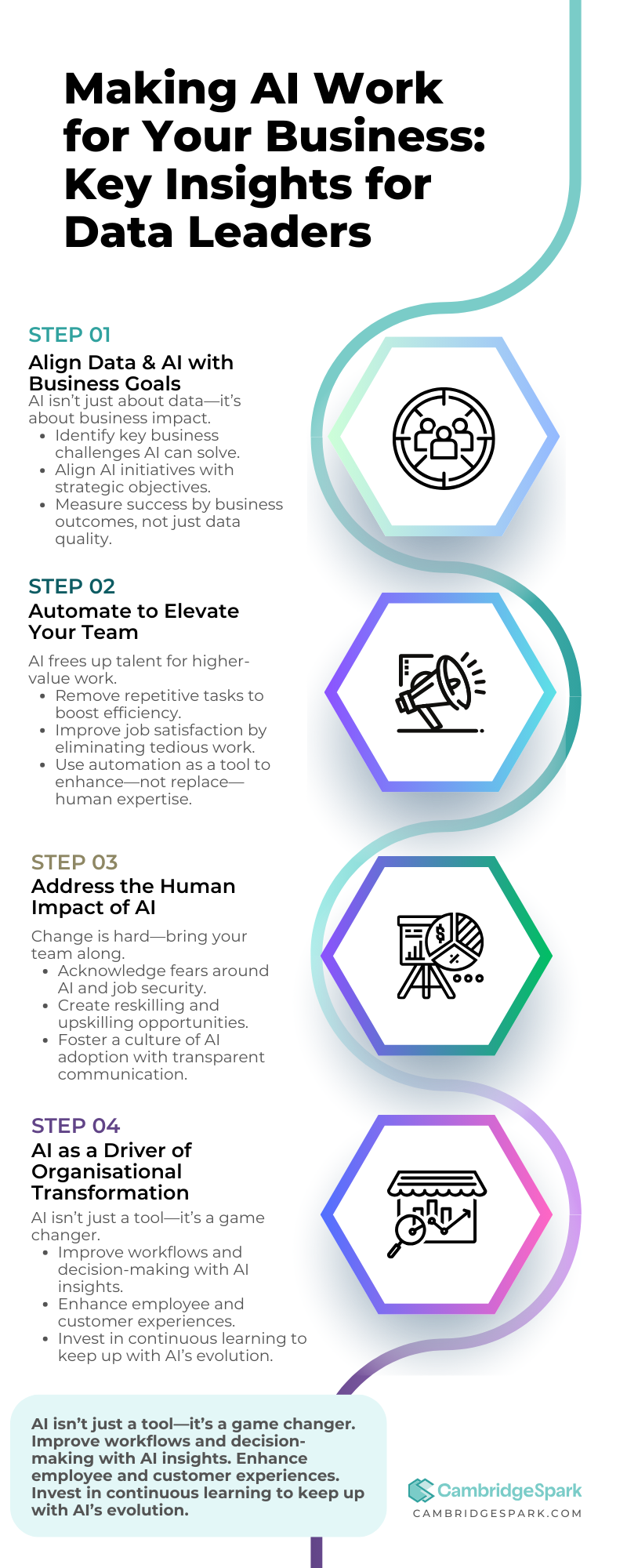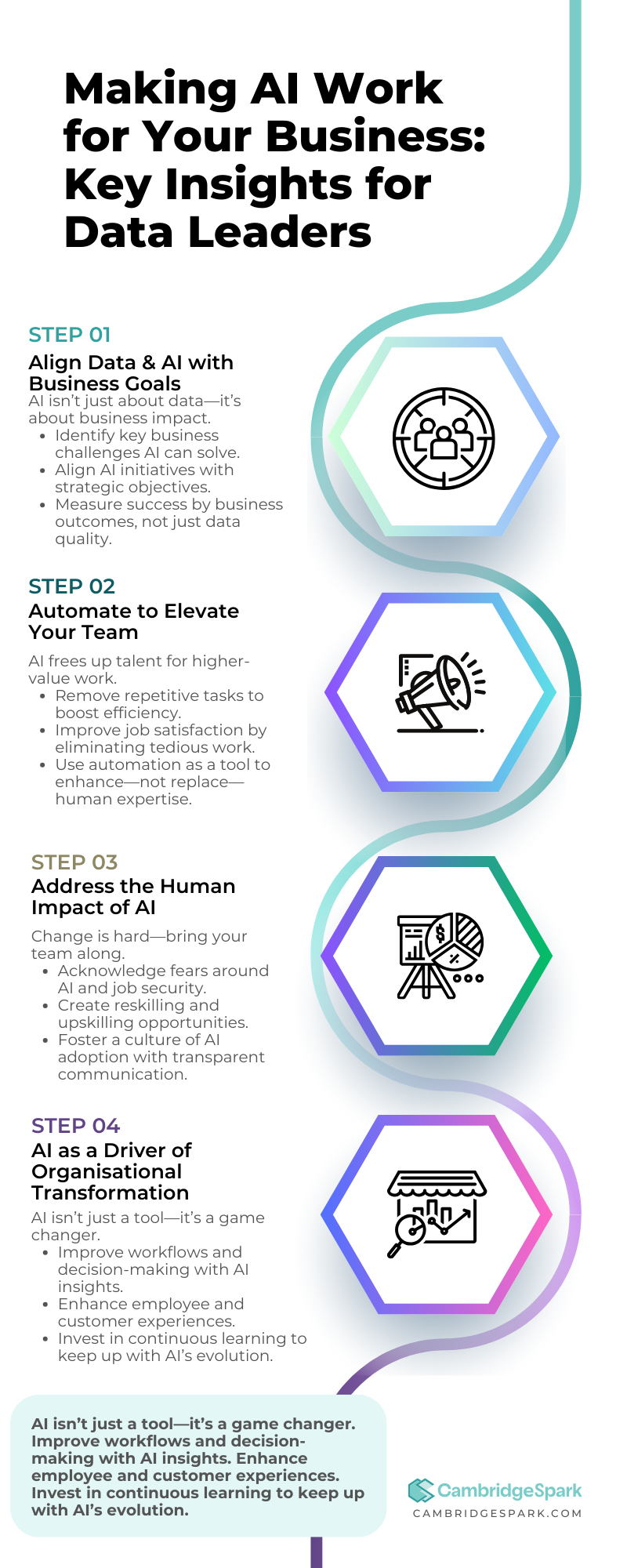As a data leader, your role is evolving alongside the explosive growth of AI in business. The question is no longer whether AI will shape the future of your organisation—that’s already happening. The real challenge is how to truly make it work for your business, your team, and your customers.
On a recent episode of the Data & AI Mastery podcast, we spoke with Alex Sidgreaves, Chief Data Officer at Zurich Insurance, who shared her insights on this very topic. After reflecting on this discussion, we’ve compiled some key takeaways that every data leader can benefit from as they steer their organisation through the AI revolution.

Here’s what to have in mind when it comes to AI adoption in business:
Align Your Data and AI Strategy With the Business Strategy
Data for the sake of data won’t get you anywhere. It doesn’t deliver any real results for the business. Alex really drives this home, emphasising the need for alignment between your data, AI, and business strategy.
She says it best, “It's about having a set of tools and people and experiences that can work with our business to move them forward. So I think it needs to be very focused on what are the business opportunities, what are the business strategies. So, it’s all about turning those into a reality using the different tools that I have.”
So, ask yourself: How much of an impact is your data actually making? At the end of the day, your business goals should always come first. Your data and AI strategy are only as good as how well they help you achieve those goals.
Automate Repetitive Tasks
One of the most powerful benefits of AI in business is undoubtedly automation. When you take mundane tasks off your team’s plate, you’re creating space for more impactful work. Work that taps into your team’s full potential, allowing them to focus on strategy, innovation, and problem-solving.
Alex points out, “What gets me excited is taking away things that people hate and taking away things that people don't like doing because it buys you advocates, but at the same time, you're removing waste from your organisation.”
The beauty of automation is that it also removes the friction that holds people back from doing their best work. As a data leader, this should be one of your main priorities.
But Don’t Forget the Human Side
While AI and automation present huge opportunities, they also come with concerns that data leaders shouldn’t ignore. Alex brings attention to the cultural shift that accompanies these technologies: “As much as you've got people being excited at the opportunities, people are still scared of it; they still worry about losing their jobs.”
The reality is that while AI removes repetitive tasks, it can also change how people interact with their work, making their roles feel more intense and different. This shift can cause anxiety.
“There's a reality to workload intensity changing as well if we start to automate all of the mundane tasks that give people a point where their brain can just relax a little bit because they're doing something a bit easier before going back up to the high-intensity work if we may remove all of that.” Another great point from Alex.
Technology alone isn’t enough. You can introduce all the tech you want, but you risk failure if you don’t address the people side of it, such as acknowledging concerns, upskilling your team, and creating a supportive culture.
Drive Organisational Transformation with AI in Business
The real power of AI in business is in how well you use it to transform your organisation, from workflows to how your team works together. All your data, technology, and talent should come together in support of your business’s overarching goals. Alex concludes, “I think one of the biggest opportunities we have within the AI and automation space is the organisational transformation. So I think these technologies can make our work much more accurate and efficient, improving our employee and customer experience.”
Finally, we can’t deny that AI is evolving and becoming more sophisticated. That’s why it’s essential to continuously invest in developing your team’s skills.
If you’re looking for ways to upskill your workforce and equip them with the vital skills needed to drive meaningful transformation, Cambridge Spark is here to support you every step of the way. Find out about our expert programmes, designed to help you deliver impact where it matters most.

-1.png)

